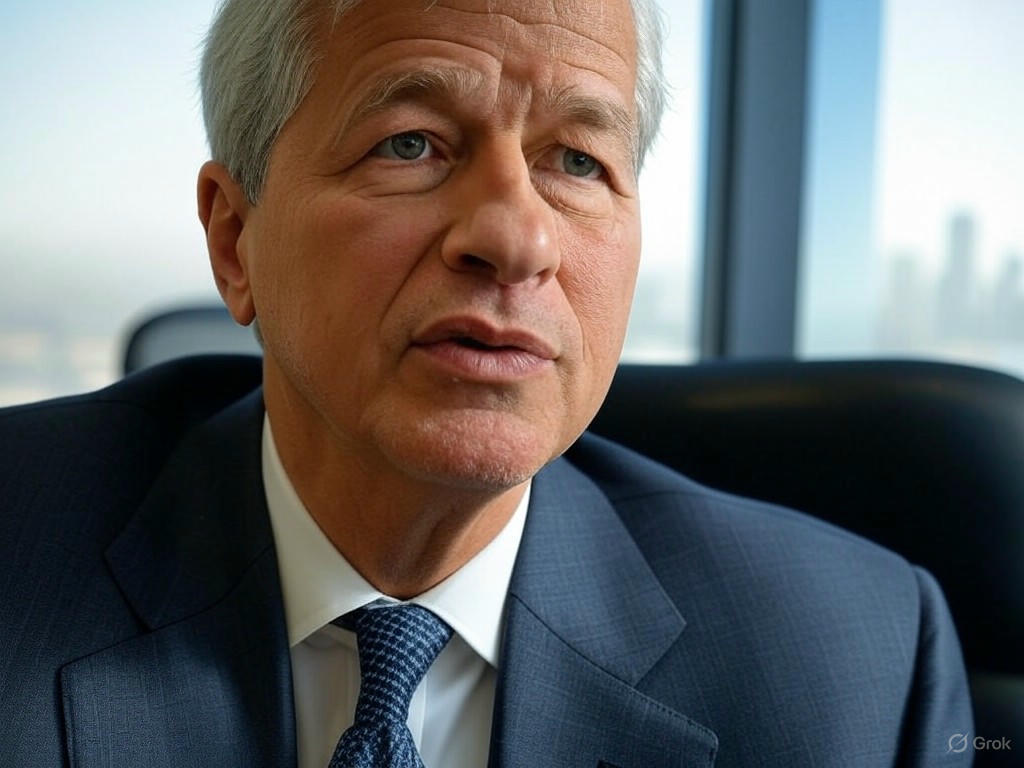Economic Storm Ahead? Jamie Dimon Sounds Alarm on U.S. Financial Future
In a recent statement that has sent ripples through the financial world, Jamie Dimon, the influential CEO of JPMorgan Chase, has raised concerns about the trajectory of the U.S. economy. Known for his candid assessments, Dimon suggested that the nation could be on the brink of challenging times, with potential shifts in employment and inflation looming on the horizon. His remarks come at a time when markets are already grappling with uncertainty, making his perspective a focal point for investors and policymakers alike.
Dimon’s cautionary words point to a delicate balance in the economic landscape. He hinted at a possible uptick in inflation, which could squeeze household budgets and force the Federal Reserve to rethink its monetary policies. At the same time, he noted that the job market might experience a slight downturn, a signal that businesses could scale back hiring or cut positions to manage rising costs. While he expressed hope that these changes would be moderate, the mere possibility of such shifts has sparked debates about whether the U.S. is prepared to weather another economic storm. Dimon’s track record of foresight—having navigated JPMorgan through past crises—lends weight to his perspective, prompting analysts to scrutinize every word for clues about what lies ahead.
The implications of Dimon’s warning are far-reaching. For businesses, a cooling job market could mean tighter budgets and a more cautious approach to expansion. For consumers, even a small rise in inflation could translate to higher prices for everyday goods, eroding purchasing power. Meanwhile, Wall Street is left to ponder how these factors might influence interest rates and corporate earnings in the coming quarters. Some experts argue that Dimon’s comments reflect broader concerns about global supply chain disruptions and geopolitical tensions, which continue to cast a shadow over economic stability. Others see his remarks as a call to action for both government and private sectors to bolster resilience against potential headwinds.
As the U.S. economy stands at this critical juncture, Dimon’s insights serve as a reminder of the fragility of growth in an interconnected world. While he did not predict a full-blown recession, his tempered outlook underscores the need for vigilance. Policymakers may need to strike a delicate balance between curbing inflation and supporting job creation, while businesses and individuals brace for possible turbulence. The coming months will likely reveal whether Dimon’s concerns materialize or if the economy can defy the odds and maintain its footing.
For now, the financial community is on edge, parsing every economic indicator for signs of deterioration. Jamie Dimon’s voice, often a barometer for market sentiment, has once again put the spotlight on the challenges ahead. Whether his predictions come to pass or not, one thing is clear: the road ahead for the U.S. economy demands careful navigation, and all eyes will be on how leaders respond to these early warnings.


